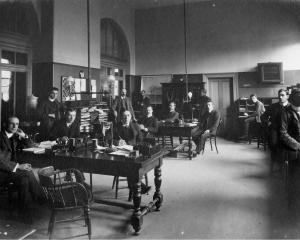Paul Williams flies in, flies out and flies for a living.
The 42-year-old has recently returned to Dunedin after his first 28-day rotation flying helicopters in Papua New Guinea and already he's enjoying the advantages of a 50:50 work-rest roster.
A helicopter pilot since 2000, Mr Williams previously worked all sorts of hours doing agricultural spraying, a type of work that offered little in the way of quality time off with his family.
"I made a decision to do fly-in, fly-out work because it provided more structured time off to spend with my family," he explains as his young son is heard in the background pleading that it's time dad took him to a local park.
"The decision wasn't really about money. It had more to do with my family knowing exactly when I'd be around," says Mr Williams, who enjoys nearly four weeks off every second month to spend with his wife, Kirsty, and their three children, who range in age from 3 to 9.
"It's been good for me and the family so far. The money is only marginally more, but that's because I'm starting off at the base with this new company. I'm on the smallest machine and the lowest hours for what they call PNG time.
"Potentially, there is more money to be made up the pay scale."
Mr Williams said he and Kirsty pored over the decision for about a year, discussing the pros and cons, about ways to make the Fifo arrangement work best for their family.
"It depends on your partner, because when you're away, she has to carry the load for everything.
"We thought we'd just see how it pans out. The family is the most important thing, more than chasing the career.
"It's surprising how many people do this sort of work arrangement.
"What we're doing is certainly a positive thing for where we are at in our lives. And if it doesn't work, I can always come back.
"Taking the family over there is definitely not an option."












